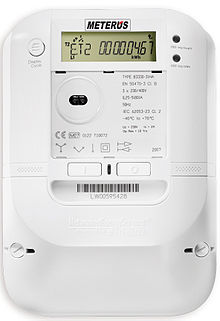A NEW report released by the University of Canberra shows that smart meters, specifically two-way meters, used to record water, electricity or gas usage, are placing the consumers’ privacy and security at risk.

In his report “Smart Meters: What does a connected house really mean?”, Mr Phair examined the use and benefits of smart metering, which measures the amount of water, electricity or gas used in a home or business, and transmits the data to the utility operator in real-time.
Mr Phair has raised concerns about the use of two-way meters that are more commonly used by electricity providers, allowing them to push data back to the meter.
“Not only is this method more costly, but it opens up cyber security and privacy issues. The meter can be hacked and when a home has a number of internet-connected devices such as alarms or garage doors, the risk is heightened,” Mr Phair says.
He says information transmitted by a smart meter is often unencrypted and can reveal details such as the age and brand of an appliance and when it is being used in the home.
“An insecure and accessible smart meter is a great way to tell when homeowners are away for extended periods of time. Rather than search Facebook postings, burglars will just be able to tap into video feeds, or see when the refrigerator was last opened.”
Energy providers and retailers have an obligation to fully explain to consumers the risks associated with the device and how the information it collects is used.
Mr Phair also believes the government has a role to play in keeping consumers safe online.
“Over the past 60 years government legislation has made cars safer and consumers make choices based on a vehicle’s safety rating,” he says.
“We need to bring this thinking into the online environment, particularly smart meters and develop digital security standards so consumers can feel safe using this technology.”
Read “Smart Meters: What does a connected house really mean?” here.
Who can be trusted?
In a world of spin and confusion, there’s never been a more important time to support independent journalism in Canberra.
If you trust our work online and want to enforce the power of independent voices, I invite you to make a small contribution.
Every dollar of support is invested back into our journalism to help keep citynews.com.au strong and free.
Thank you,
Ian Meikle, editor




Leave a Reply